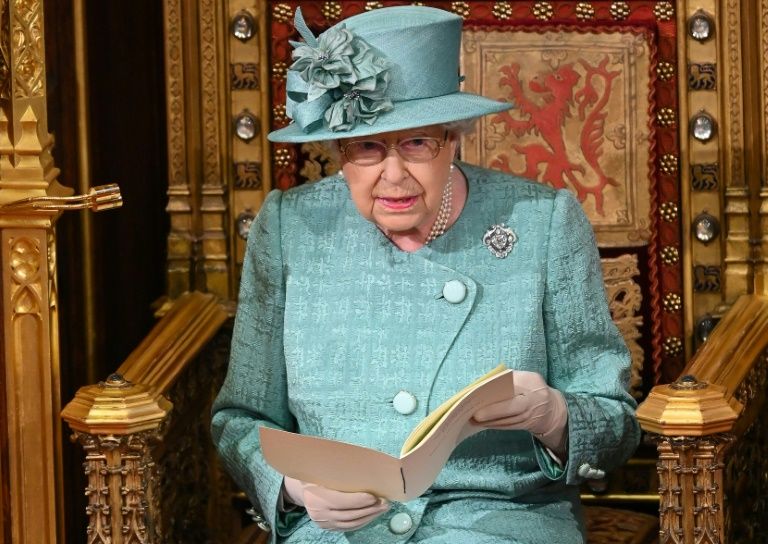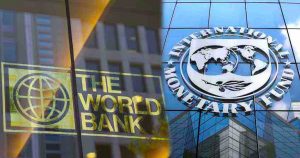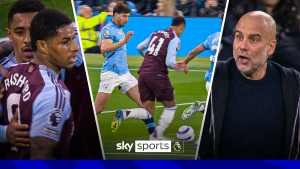Britain’s royals need the Queen more than ever after a year of scandals

Taken together, the headlines paint a picture of a monarchy in crisis. So, how will this hallowed institution bounce back again in 2020? The answer is simple: As it always has done, with Elizabeth II firmly at its helm.The first shock of the year came in January when the Duke of Edinburgh was involved in a car crash near Sandringham, the family’s estate in Norfolk, eastern England. Prince Philip was unhurt when his Land Rover flipped onto its side, though a woman in the other car was injured. But when the elderly duke — who is rarely seen these days following his retirement in 2017 — was spotted back behind the wheel the following day, there was a media furor. The situation was compounded when it emerged that the victim had not been immediately contacted by the duke in the days after the crash and was swiftly followed by an announcement that the then-97-year-old would give up his driving license. “The Queen has been without her ‘strength and stay’ as [the duke] is based at Wood Farm on the Sandringham Estate, even though they reportedly speak every day by telephone,” explained royal commentator Richard Fitzpatrick. Fitzpatrick added that the absence of the long-time patriarch — who previously assumed the roles of “modernizer” and “pragmatist” — had been keenly felt this year.In his absence, Prince Charles and his son William — also known by their official titles of the Prince of Wales and Duke of Cambridge — began accompanying the Queen to engagements. It’s all part of the inevitable transition but abdication is dismissed out of hand by aides who point to the monarch’s repeated commitments to “life-long service.” Even the idea of a regency — where she retains the Crown but hands over all official responsibilities to Charles — seems to be off the agenda.Philip wasn’t the only senior royal to have run-ins with the media this year. The Duke and Duchess of Sussex also took time out in November and December, after months of clashes with the press. A CNN investigation in March revealed the palace had beefed up their social media operation amid a rise in racist online abuse targeting Meghan. They have been devoting more resources to deleting comments targeting the duchess, blocking abusive accounts and filtering out use of the n-word and gun and knife emojis.In June, a far-right teenager who reportedly branded Prince Harry a “race traitor” and suggested he should be shot after his marriage to Meghan, was jailed for more than four years.Meanwhile, the couple’s battle with the newspapers escalated. When the palace revealed millions of pounds of public money had been used to renovate Frogmore Cottage, the Sussex family home near Windsor Castle, the British papers complained they weren’t getting fair access to the family, particularly after baby Archie’s christening was closed to the media.The couple was also accused of hypocrisy for using private jets to fly off on holiday, while also campaigning on environmental issues.The Sussexes went on the offensive over what Harry described as a tabloid campaign against Meghan that he said mirrored the treatment meted out to his mother, Diana, Princess of Wales. The duchess sued the Mail on Sunday, alleging that it had illegally published a private letter to her father. The duke launched his own legal proceedings against the Daily Mirror and the Sun, over alleged phone-hacking. All publications deny the couple’s claims and have vowed to fight them vigorously.In a documentary for British channel and CNN affiliate ITV news that followed the couple on their southern African tour, the Sussexes revealed that they had found life over the past year or so difficult.”I never thought that this would be easy, but I thought that it would be fair,” the duchess said of her treatment by the media. “I’ve really tried to adopt this British sensibility of a stiff upper lip,” she said. “I tried, but I think what that does internally is probably really damaging.” Asked how she was feeling, Meghan responded, “Thank you for asking because not many people have asked if I’m okay, but it’s a very real thing to be going through behind the scenes.”That comment was seen by some columnists as a slight against other family members. And was compounded by Prince Harry’s acknowledgment of tensions with his older brother Prince William saying they are on “different paths.”After the program aired, a source at Kensington Palace told the BBC that the Duke of Cambridge was “worried” about his brother. That was followed up by a source close to the Sussexes telling CNN the couple are “single-handedly modernising the monarchy” despite officials around them being “afraid” to harness their power.The flood of leaks and counter-leaks fueled the tabloid narrative of a rift in the family.After the Sussexes vanished from public life in November, media attention shifted to Prince Andrew, the Queen’s second son who agreed to an extended interview with the BBC in an effort to clear up speculation about his association with convicted sex offender Jeffrey Epstein. It had the opposite effect. Epstein had allegedly trafficked Virginia Giuffre — previously known as Virginia Roberts — when she was 17 years old, forcing her to have sex with his friends, including the Duke of York.In the interview, the duke denied having any sexual contact with Giuffre, insisting he had “no recollection of ever meeting this lady.”But Prince Andrew also said he didn’t regret his relationship with Epstein, who died by apparent suicide in August, and failed to express any sympathy for the disgraced banker’s victims.The fallout from widely-criticized interview dominated the tabloids, with reporters digging out inconsistencies in the duke’s story. It descended in to farce as pictures of Prince Andrew sweating were pulled out to undermine his claim that he didn’t sweat at the time of the alleged offenses due to a medical condition.Days later, Andrew was left with no choice but to release a follow-up statement, in which he said: “I continue to unequivocally regret my ill-judged association with Jeffrey Epstein. His suicide has left many unanswered questions, particularly for his victims, and I deeply sympathise with everyone who has been affected and wants some form of closure.” To halt the backlash, the duke added he was stepping back from public duties.CNN understands that decision followed a meeting with the Queen after she sought the opinions of Prince Charles and others. Multiple sources have made it clear to CNN that the Queen led on the issue of how to handle Andrew, not Prince Charles as some local outlets reported. The sources also disputed a recent narrative that has emerged in some UK tabloids that the 93-year-old sovereign is stepping aside for Charles as fictional. CNN also understands that Andrew’s departure from public life may not be permanent — though any timeline on his return will likely be defined by the American judicial system and whether Andrew is called in for questioning. While announcing he was stepping back from his royal role, Andrew also said he was “willing to help any appropriate law enforcement agency with their investigations, if required.” So far, no formal requests have been made by US authorities and no criminal charges have been brought against the Duke of York.Amid all her domestic woes, the Queen was also tested professionally when Prime Minister Boris Johnson asked her to shut down Parliament for five weeks at the height of the Brexit debacle. She rubber-stamped the request in line with her duty to stay out of politics and to act only on the advice of ministers.But when the Supreme Court found the prorogation was illegal, it raised the uncomfortable question of whether the Queen had broken the law. The ruling led to accusations Johnson’s government deliberately misled the monarch as part of its strategy to secure Brexit — but regardless, any political maneuver involving the Queen is the ultimate faux pas. Johnson was forced to personally apologize for embarrassing the monarch, according to the Sunday Times. The paper’s royal sources revealed that “there was huge disquiet in the Queen’s household about Johnson’s decision to prorogue parliament.”While Johnson’s strategy was questionable, others displayed the customary deference and respect to the British sovereign in 2019. We certainly saw it from US President Trump during his state visit earlier in June. Throughout the visit, the American commander in chief appeared enthralled and engaged alongside the head of the Commonwealth and Defender of the Faith.Speaking to Fox News right after the trip to London, Trump called the Queen an “incredible lady.”He added: “I feel I know her so well and she certainly knows me very well right now, but we have a very good relationship also with the United Kingdom.” In 1992, the Queen endured what she called her “Annus Horribilis,” a year that saw three of her children endure marital strife and Windsor Castle almost burned down. Characteristically, she bounced back and steered the royal family back into the nation’s hearts.Now, almost three decades on, the monarch has seen yet another ghastly 12 months in which her ability to unify is more essential than ever.In her annual Christmas address, the Queen was already moving the message onto one of reconciliation. She admitted that 2019 had been a demanding year and that the path was not always smooth and “but small steps can make a world of difference.” The message from everyone around her is that she has no intention of compromising that role — and that can only be coming from the top.CNN’s Lauren Said-Moorhouse contributed to this report.





